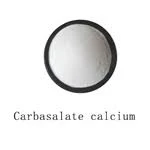- Afrikaans
- Albanian
- Amharic
- Arabic
- Armenian
- Azerbaijani
- Basque
- Belarusian
- Bengali
- Bosnian
- Bulgarian
- Catalan
- Cebuano
- Corsican
- Croatian
- Czech
- Danish
- Dutch
- English
- Esperanto
- Estonian
- Finnish
- French
- Frisian
- Galician
- Georgian
- German
- Greek
- Gujarati
- Haitian Creole
- hausa
- hawaiian
- Hebrew
- Hindi
- Miao
- Hungarian
- Icelandic
- igbo
- Indonesian
- irish
- Italian
- Japanese
- Javanese
- Kannada
- kazakh
- Khmer
- Rwandese
- Korean
- Kurdish
- Kyrgyz
- Lao
- Latin
- Latvian
- Lithuanian
- Luxembourgish
- Macedonian
- Malgashi
- Malay
- Malayalam
- Maltese
- Maori
- Marathi
- Mongolian
- Myanmar
- Nepali
- Norwegian
- Norwegian
- Occitan
- Pashto
- Persian
- Polish
- Portuguese
- Punjabi
- Romanian
- Russian
- Samoan
- Scottish Gaelic
- Serbian
- Sesotho
- Shona
- Sindhi
- Sinhala
- Slovak
- Slovenian
- Somali
- Spanish
- Sundanese
- Swahili
- Swedish
- Tagalog
- Tajik
- Tamil
- Tatar
- Telugu
- Thai
- Turkish
- Turkmen
- Ukrainian
- Urdu
- Uighur
- Uzbek
- Vietnamese
- Welsh
- Bantu
- Yiddish
- Yoruba
- Zulu
ታኅሣ . 13, 2024 16:02 Back to list
ivermectin injection dose for cattle
Ivermectin Injection Dose for Cattle A Comprehensive Guide
Ivermectin, a broad-spectrum antiparasitic agent, is widely used in veterinary medicine to treat and control various parasitic infections in livestock, particularly cattle. Its effectiveness against a range of internal and external parasites makes it a cornerstone in cattle health management. Understanding the correct dosage and administration methods is crucial for maximizing efficacy and ensuring the safety of the animals.
Purpose of Ivermectin in Cattle
Cattle can be affected by a multitude of parasites, including gastrointestinal worms, lungworms, and external parasites such as lice and mites. Ivermectin works by disrupting the parasite's nervous system and metabolism, leading to paralysis and death of the parasite. This not only helps in improving the overall health of the cattle but also enhances productivity by improving weight gain and milk production.
Determining the Dosage
The recommended dosage of ivermectin for cattle typically ranges from 200 to 500 micrograms per kilogram of body weight. The exact dosage can vary depending on the specific formulation being used, the type of parasite being targeted, and the weight of the animal. For instance, ivermectin injectable formulations generally require a dosage of 1 mL per 50 kg (110 lbs) of body weight for effective treatment.
To ensure accurate dosing, it is important for farmers and veterinarians to weigh the animals accurately. Overdosing can lead to toxicity, while underdosing may result in treatment failure and contribute to the development of drug-resistant parasite strains.
Administration Method
ivermectin injection dose for cattle

Ivermectin is typically administered via subcutaneous injection, although some formulations are available for intramuscular use. The injection should be given in the neck area, avoiding any areas with lesions or health issues. Proper injection technique is essential to minimize discomfort for the animal and to ensure that the medication is absorbed properly.
Before administering ivermectin, it is vital to follow the manufacturer’s guidelines regarding the specific formulation in use, as there are variations in concentration and recommended administration methods. Always use sterile equipment and maintain proper hygiene during the procedure to avoid any infections.
Safety and Precautions
While ivermectin is generally considered safe for use in cattle, some precautions should be observed. It is essential to avoid using ivermectin on sick animals without consulting a veterinarian, as their condition could affect how the drug is metabolized. Additionally, be aware of withdrawal times for ivermectin; cattle must not enter the food chain until the appropriate withdrawal period has elapsed to prevent drug residues in meat and milk.
Farmers should also consider rotating antiparasitic treatments to prevent the development of resistance. Regular fecal examinations can help in identifying parasitic loads in cattle and determining the need for treatment.
Conclusion
Ivermectin is a powerful tool in the arsenal of cattle health management. Its effectiveness against a variety of parasites contributes significantly to livestock welfare and productivity. However, proper dosing and administration practices are critical for ensuring both the efficacy of the treatment and the safety of the animals. By adhering to recommended guidelines and consulting with a veterinarian, cattle owners can effectively control parasitic infections and promote optimal health in their herds. As research continues into improving treatments and understanding resistance patterns, ivermectin remains a vital component in livestock management strategies.
-
Guide to Oxytetracycline Injection
NewsMar.27,2025
-
Guide to Colistin Sulphate
NewsMar.27,2025
-
Gentamicin Sulfate: Uses, Price, And Key Information
NewsMar.27,2025
-
Enrofloxacin Injection: Uses, Price, And Supplier Information
NewsMar.27,2025
-
Dexamethasone Sodium Phosphate Injection: Uses, Price, And Key Information
NewsMar.27,2025
-
Albendazole Tablet: Uses, Dosage, Cost, And Key Information
NewsMar.27,2025













